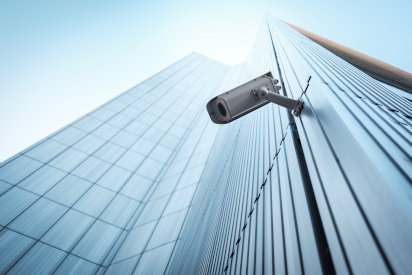On 17 March 2021, the Director-General of the Australian Security Intelligence Organisation (ASIO), Mike Burgess, delivered his second annual threat assessment in an address to partners across government, the intelligence community, and law enforcement.
This address is designed to make the ASIO more open and transparent, providing an update on Australia’s threat environment and what the ASIO is doing about it.
Who is the ASIO?
The ASIO is an Australian intelligence agency tasked with upholding Australia’s national security. Its priorities include counter-terrorism, counter-espionage and foreign interference, and border security.
Despite the “top secret” perception of the organisation, Mr. Burgess tried to paint a more human picture of the organisation, saying that visitors “are often surprised by how ‘normal’ our people look. The Hollywood versions of spies and spy catchers are a long way from reality.”
The ASIO’s staff includes former nurses, teachers, tradies, musicians, engineers, and journalists.
Australia’s national security threats in a changing landscape
Mr. Burgess stated that “The environment is complex, challenging and changing” and highlighted the key emerging security threats, as well as the response of the ASIO.
The impact of COVID-19
The address covered the intensification of security threats related to the pandemic, which required the ASIO to quickly adapt to a new operating environment. Some of the key threats included:
- More time spent online leading to increased risk of radicalisation, with people able to access hate-filled propaganda and plans for carrying out attacks.
- Ideological extremists and terror groups used the pandemic as an opportunity to portray governments as oppressors, and sow seeds of division.
- Foreign spies utilised their increased time at home to work on evolving their tradecraft and increasing online activity.
Mr. Burgess talked about the requirement for the ASIO to change its modus operandi in response to these threats, saying that “We have to stay ahead of the terrorists and spies, because if our targets know we can do something, we have to be able to do something else.”
What is Australia’s security outlook?
As Australia emerges from the COVID crisis, adversaries are seeking to undermine and exploit its recovery. Mr. Burgess stated that “The terrorist threat remains at PROBABLE.”
He painted a clear picture that violent extremists are plotting against Australia, and this is a significant threat that is not going away. These groups have recently used crises other than the pandemic as an opportunity to spread hate and violence. For example, ISIL released a video last year referencing the Australian bushfire crisis to encourage arson attacks in the West.
There have also been a number of recent, religiously motivated terrorist attacks in Australia, including the murder of an elderly couple in their Brisbane home, and multiple cases where preparations for terrorist attacks were identified and disrupted.
The rise of ideological extremism
The ASIO has seen a sharp rise in ideological extremism investigations, and it has dedicated more resources to this emerging domestic threat.
Mr. Burgess highlighted that the offenders in this category have evolved beyond typical stereotypes such as “skinheads”, with “Today’s ideological extremist […] more likely to be motivated by a social or economic grievance than national socialism. More often than not, they are young, well-educated, articulate, and middle class—and not easily identified.”
Mr. Burgess also conveyed that the ASIO will be changing the language it uses to match the evolving threat environment, now referring to two categories:
- Religiously motivated violent extremism, and
- Ideologically motivated violent extremism.
Countering espionage and foreign interference
Countering spies and malicious actors is a key priority of the ASIO.
Mr. Burgess stated that “Foreign spies are constantly seeking to penetrate government, defence, academia and business to steal classified information, military capabilities, policy plans and sensitive research.”
Espionage methods are also becoming increasingly technology-enabled, and “Rather than a spy sidling up to a target in a train station, he or she is now more likely to send a friend request, or a job offer.”
Foreign interference refers to actions by a foreign power, directly or indirectly, to harm Australia’s interests. Mr. Burgess highlighted the significant progress by the ASIO in discovering, disrupting, and deterring these threats.
One recent investigation focused on a team of spies from a foreign intelligence service operating in Australia who developed targeted relationships with current and former politicians, a foreign embassy, and a state police service. They tried to obtain information about Australia’s diaspora community, trade relationships, and airport security protocols. They also successfully recruited an Australian government security clearance holder who had access to sensitive details of defence technology.
Mr. Burgess described how the ASIO “investigated, identified and verified the activity. We cancelled the government employee’s security clearance. We confronted the foreign spies, and quietly and professionally removed them from Australia.”
The race to innovate
Malicious actors seeking to harm Australia have become increasingly sophisticated in their operations and are abusing technologies such as encryption to perpetrate crimes and evade detection. The ASIO also needs to increase its technical sophistication to meet these threats head on, and it is focusing on data analytics and machine learning to streamline its operations.
The organisation also advocates for legislative changes that will keep technology on its side, rather than on the side of opponents. One example is that last year, legislation was passed allowing the ASIO to use tracking devices and to compel suspected spies to attend interviews.



